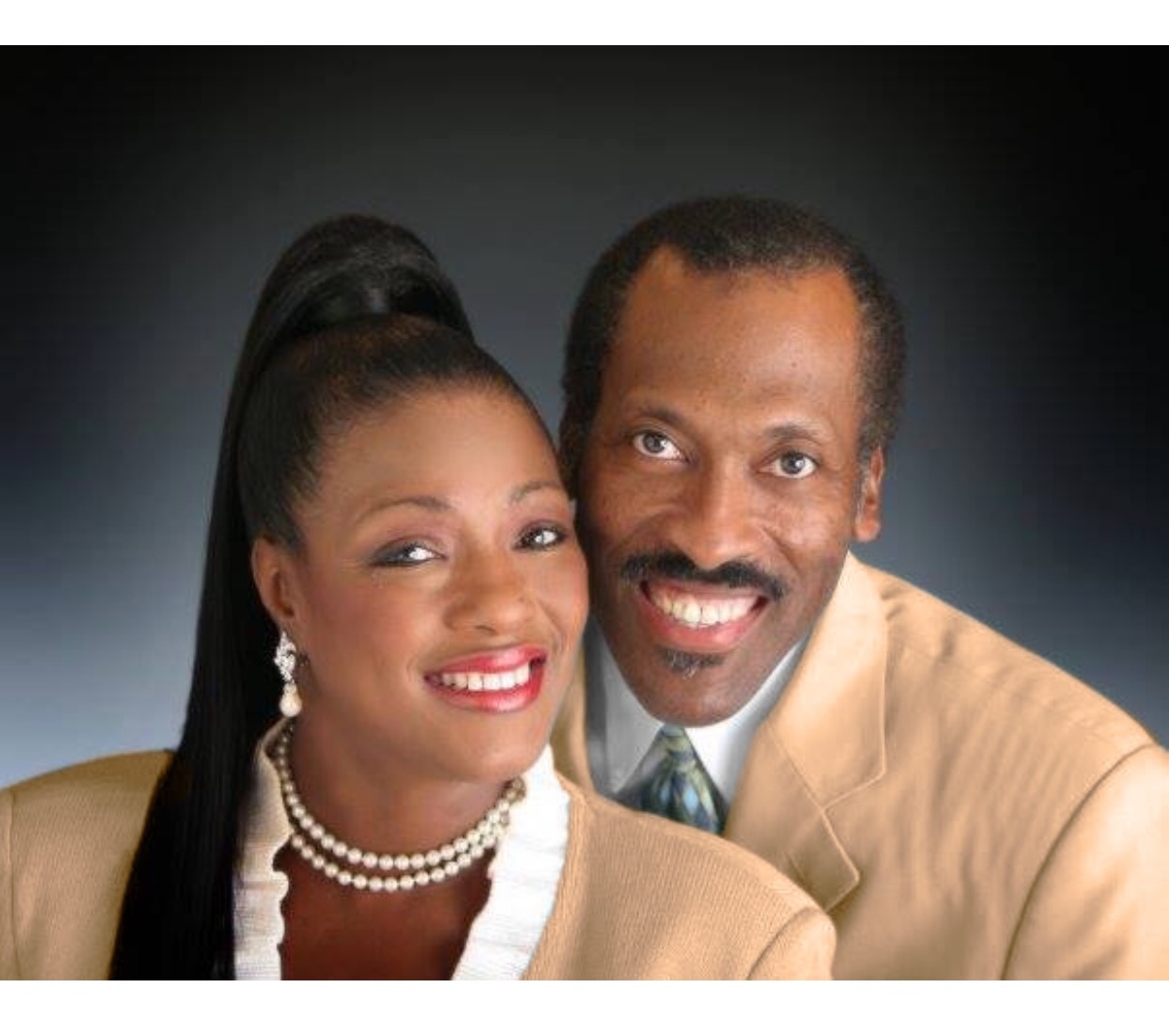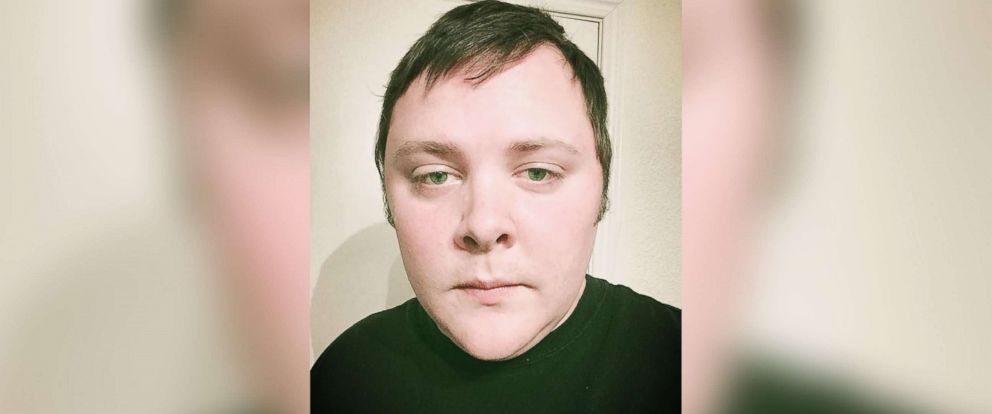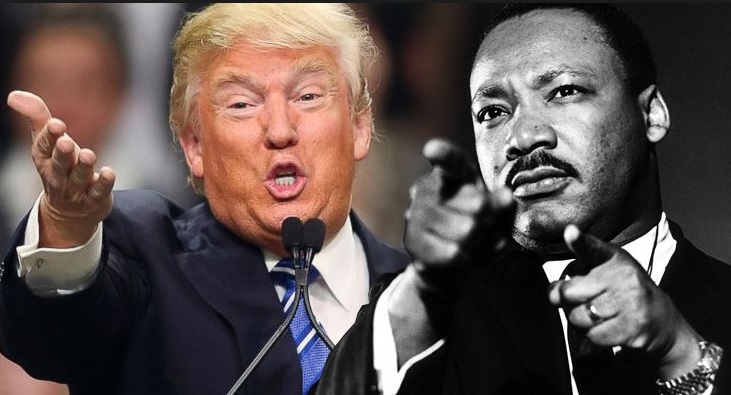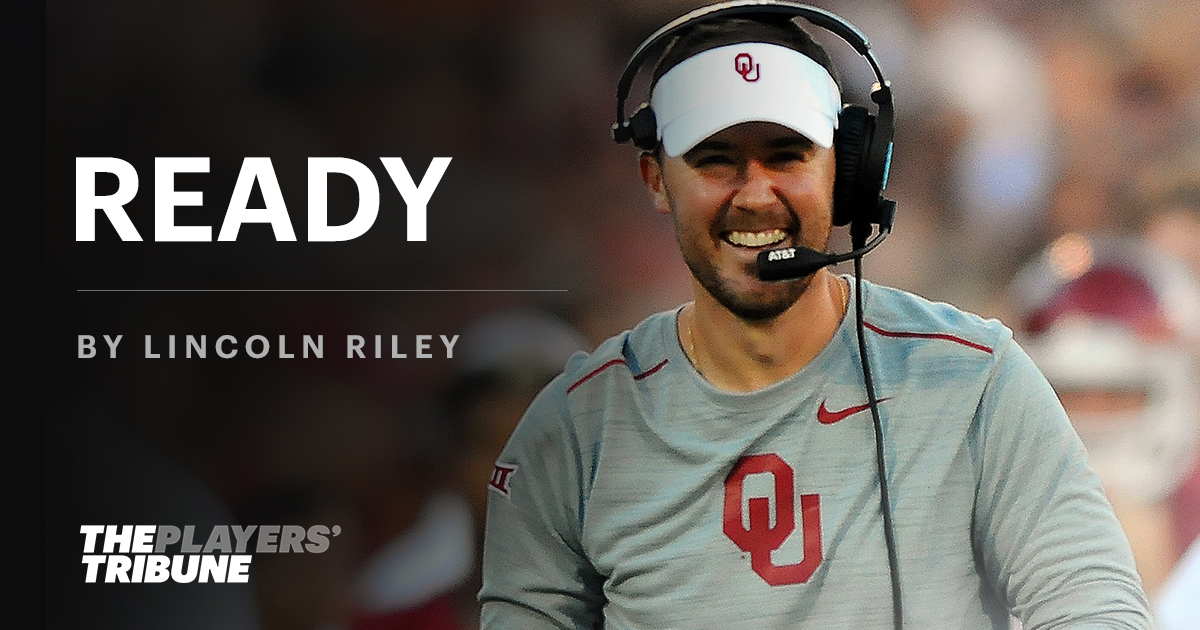
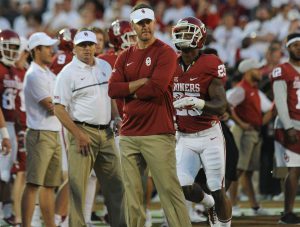
Look, I get it. I’m a bit younger than you’re used to.
At 34, I don’t really fit the profile of what most people might expect from the head coach of a major college football team. That’s even more the case when you consider the legendary coaches who have led Oklahoma in the past, including the man I’m following, Bob Stoops. All he did was win more games than any coach in this program’s storied history, while also stockpiling 10 Big 12 Conference championships.
I think the biggest thing people should know out of the gate is that I don’t have an ego going into this. I know some guys will get a coaching gig and immediately try to differentiate themselves from the previous coach. But honestly, I would be a complete idiot if I did that. It would also be counter to how I’ve found success as a coach so far during my career.
We’re all shaped by the people we surround ourselves with. I’m a big believer in that. I’ve been lucky enough to be molded by a lot of great mentors over the years, and I’ve learned something from each of them.
I was a walk-on quarterback at Texas Tech in the early 2000s. I had gotten some offers from smaller programs and a few Ivy League schools, but none of them interested me. What did interest me a whole lot was football, and particularly what Coach Mike Leach was doing in Lubbock with his Air Raid offense.
Coach Leach was the first person who really pushed me into coaching. When I was just a freshman, he told me that he thought I was pretty good at relating to players and asked me if I might be able to help him out coaching his quarterbacks. Initially, I didn’t even know enough about college football to understand what a student assistant was or what the job entailed. But after a little convincing from Coach, I decided to give it a shot. The lessons started soon after.
When I was 23 he brought me on full-time as a wide receivers coach. I felt a little overwhelmed, but his decision didn’t necessarily surprise me. Coach Leach is the kind of guy who isn’t afraid to march to the beat of his own drum. One of the things I loved about him at Texas Tech was if he thought something could help the program, he was willing to ignore the status quo and pursue it. Simple as that.
Coach Leach’s inclination to think outside the box had a big impact on the way I approach coaching. This is a sport where change is constant. What’s mainstream now was once under the radar, and conventions are what other people follow when they’re out of ideas. So adaptability is one of the most important traits a coach can possess. Not just a willingness to change, but finding a true enjoyment in it.
But beyond being ready to embrace change, you — at your core — have to be a people person. Not just when it comes to talking to people related to the program, but anybody.
I’ll give you an example.
My first or second year as an assistant at Tech, I was doing some work in Coach Leach’s office when his cell phone rang.
He picked it up and said, “Hey, how’s it going?” And then he listened for a second and asked, “Where ya calling from?”
He kept talking on the phone and I eventually sort of tuned out. Now, a short phone conversation for Coach Leach is an hour. So he was talking about this and that, and I was kind of hunkered down working on my own stuff. At some point, the call got dropped. They must have lost reception. Coach said, “Can you hear me? Are you there?”
Then he closed his old-school flip phone, swung it back open and redialed. He said, “Hey, sorry I lost you.” And then they resumed their conversation for another 30 minutes or so before Coach finally hung up.
After he was done, we started talking and I said, “Hey Coach, who was that on the phone?”
And he said, “Oh, they had the wrong number.”
See? People person.
 PHOTO BY GREG NELSON/SPORTS ILLUSTRATED/GETTY IMAGES
PHOTO BY GREG NELSON/SPORTS ILLUSTRATED/GETTY IMAGES
I’ve always been told that a coach’s job is to take someone to a place they can’t reach by themselves.
Working under Coach Stoops was basically a master class in how to do that. He always understood that his job was to set the tone for everyone, from the offensive coordinator to the walk-on long snapper. And that was something that stretches well beyond football. In 2015, not long after I arrived at OU, there was a disgusting video published on the Internet showing a couple of students singing a racist song. It was hateful, it was hurtful and it didn’t represent anything that this university stands for.
This incident occurred just after our first spring practice, right when I was trying to install our new offensive system. Beyond that, the team was coming off a disappointing season in which we had finished 8–5, and a bunch of the staff was new and trying to get things up and running. There was a lot to cover and those spring practices were critical.
But our players were hurting. This incident had cut the university deeply, and that was something Coach Stoops recognized as being much more significant than football.
Even though it was a critical time for our program football wise, he put practice on the back burner. He gave the players space to process the incident and offered them whatever support they needed. When our players decided to engage in a silent protest, the staff joined them. For two weeks, we put our pads and playbooks away and focused on healing. And as a result, instead of letting this incident be something that tore our program apart, Coach Stoops took control of the situation and used it as an opportunity to bring us closer together.
Rather than sweep that negative situation under the rug, Coach Stoops was able to use his platform to bring it front and center and turn it into a positive for our program. It galvanized us as well as the entire campus. And I don’t think it’s a coincidence that by the time the season came around, we had a tight-knit, mature team that ended up winning our conference and qualifying for the College Football Playoff.
In the past couple of years, I’ve learned a lot from Coach Stoops about what it means to coach at a big-time program. But that right there showed me more than anything what this job entails. It’s about taking any situation, any obstacle, and viewing it as an opportunity to make the young men who have put their trust in you better. You want to know why he was so good at this place for so long? It was the connection he had with his players.
I always respected Bob as a coach. That’s been true for as long as I’ve been involved with football. But how he handled that situation forever made me respect him as a man.

For two weeks, we put our pads and playbooks away and focused on healing.
LINCOLN RILEY
PHOTO BY NICK OXFORD/TULSA WORLD/AP
I plan on having a really close relationship with Coach Stoops moving forward.
I’m lucky enough to have him about a mile away from where I live, and I plan to get his advice as often as I can. I also have Coach Switzer — another coach who has performed at a legendary level — nearby and willing to offer his counsel. I’m going to embrace both men as resources as I attempt to build on what they had a huge hand in creating.
A big part of that will involve recruiting the right talent. One of the questions I’ve been asked quite a bit is what I look for in a player.
You know, what I’ve found is that the easiest thing to evaluate in the recruiting process is athletic ability. And that’s getting easier all time, as the recruiting industry continues to grow, and to make players’ tapes and measurements more available than ever.
But what I’ve learned is just as important — though much more difficult to evaluate — is the type of person we’re recruiting. Who do they surround themselves with? What’s their motivation? What direction are they going?
Many people look back on when they were 17 and immediately think about all the mistakes they made, and their misplaced priorities. It’s very difficult to judge someone’s character when they’re at an age when they’re still very much figuring out who they are. So making that judgement is where our most important work needs to be done.
One of my biggest priorities as a head coach will be recruiting the right kind of football player. I want kids whose main goal isn’t to play at OU, but to achieve things far beyond that. We aren’t looking for guys who we’re going to have to hunt down for academic appointments or workouts. As a program, we simply don’t have time for that.
Height, weight and speed are all simple things to measure. They’re plainly visible. Willingness to grow? That’s trickier, but it’s the metric that is going to help OU football continue to thrive.
 PHOTO BY BRETT DEERING/GETTY IMAGES
PHOTO BY BRETT DEERING/GETTY IMAGES
The very first day I walked onto campus at Oklahoma, my initial feeling wasn’t awe or excitement. I felt pressure. I felt a sense of responsibility. OU is a place where that’s just always present. You don’t need to say it or even acknowledge it — it’s just there.
When you’re here, it’s easy to understand why there has been not just success in Norman, but sustained success. All-time, we’ve been ranked in the top five of the Associated Press poll more weeks than any other program, and we’re the only school with four head coaches who have each won more than 100 games. The decisions here are made the right way, and the leadership is incredibly stable. That’s all to say that yes, I might be young, but I’m not alone in determining this program’s success.
This institution is bigger than any one person. It has traditions that stretch back far longer than I’ve been alive. I know there’s a certain standard that I need to live up to, and I plan to do everything I can to surround this program with the right people and bring in the right players in order to do just that.
That process has already started. I’m incredibly excited to have Ruffin McNeill joining what I believe is the best staff in the country, not just because he’s such a great football mind, but also because I’m not sure that I’ve ever been around a better human being. He’s a fantastic addition to this university, and I know our players will be better for having him involved in their lives.
I was hired here because I’m ready. Coach Stoops knew I was ready. That’s the best endorsement I could ever hope for.
I’m not here to usher in a new era of OU success — this is already a championship-level program. I’m just lucky enough to have the opportunity — along with the players, the assistants, the students, the alumni and the fans — to help write the next chapter.
Together we will.
Boomer Sooner!



